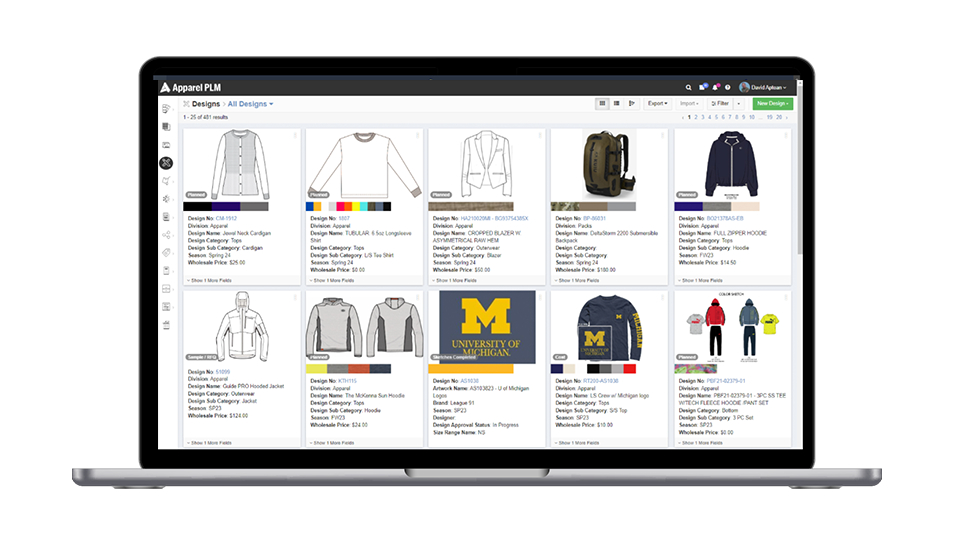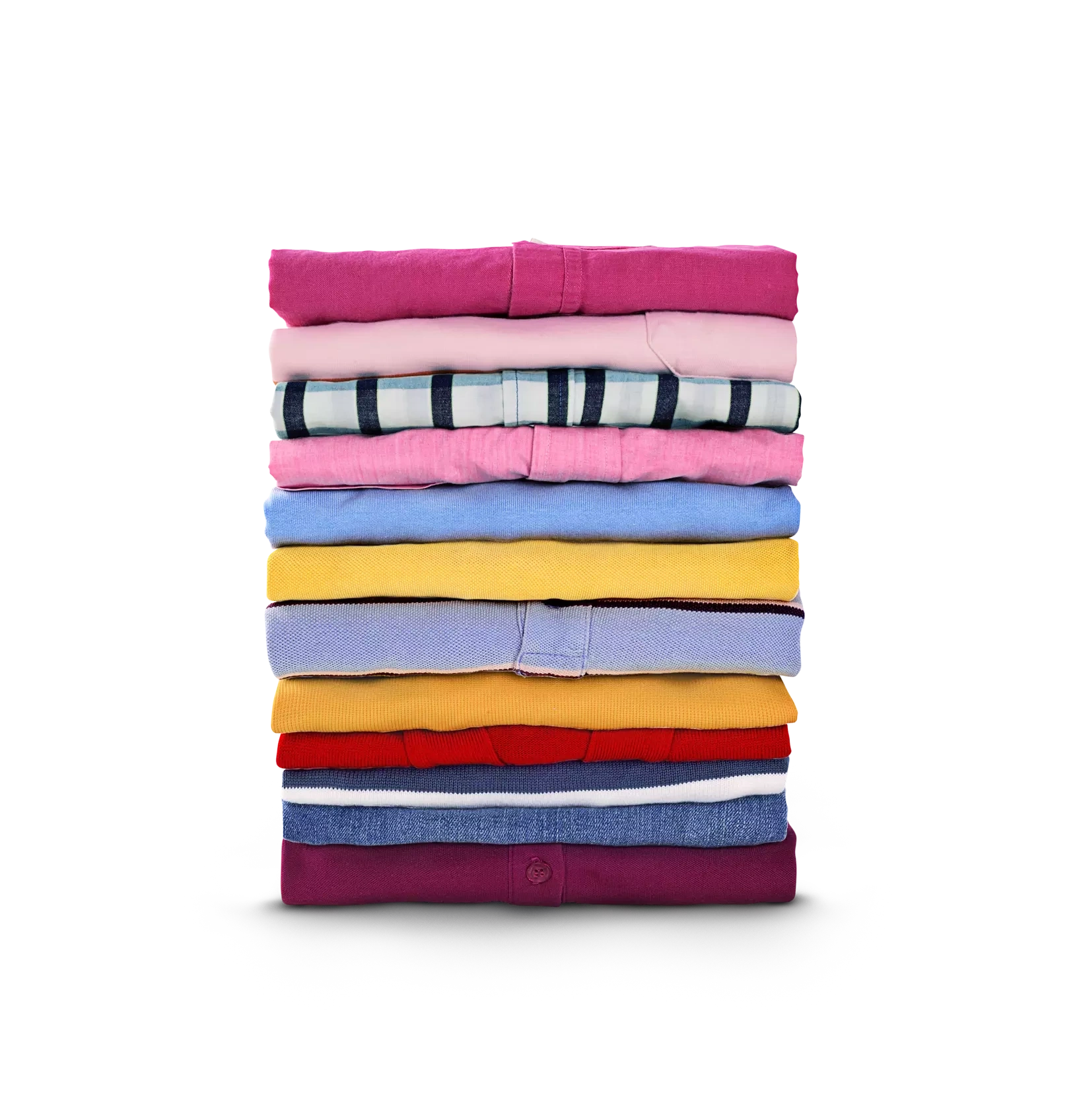In diesem Beitrag vorgestellt
Go From Concept to Consumer With Apparel ERP
Go From Concept to Consumer With Apparel ERP
24 Mai 2022
 Aptean Staff Writer
Aptean Staff Writer 
If you run an apparel design or manufacturing company, you know that you need full visibility of your product from its inception to the retail racks. Your supply chain is a massive ecosystem and current supply chain woes aren’t making your job any easier. In addition, your company must juggle sourcing raw materials, planning and design, as well as preserving valuable relationships with your retailers. Now, with sustainability issues plaguing the industry, you also must be mindful of your carbon footprint as regulations get more stringent.
The fashion and apparel industry is a multifaceted business, and if you are trying to run it with manual processes or a legacy enterprise resource planning system, chances are it will fall like a house of cards. There is a solution—apparel ERP software. An industry-specific apparel solution manages all these processes, as well as administering warehouse, distribution, accounting and payment solutions in one place.
In the article below, we’ll explore what exactly an apparel ERP is, what is does and how it will benefit your apparel manufacturing enterprise.
What Is Apparel ERP, and Why Do You Need It?
All ERPs are set up to do one thing—integrate all departments and functions across a company into a single, unified system. A good ERP should streamline and automate internal business processes and improve productivity and efficiency throughout all departments.
Apparel ERP software takes it one step further. This type of software assists with all aspects of apparel manufacturing, from conception to ordering supplies to manufacturing and even to processing and shipping the finished products. The best apparel software products are built and designed by industry experts and should offer features that improve speed to market.
Apparel manufacturers need features that foster innovation and collaboration at the design phase; give full visibility at the planning and ordering phase; and that automate critical business transactions at the sales and fulfillment phases. The most flexible apparel ERP solutions will even help manage manufacturing processes.
The fashion industry is unique—it is driven by ever-changing consumer tastes and trends—more so than any other industry. Therefore, apparel manufacturers and distributors need to remain agile. They need a software solution that allows them to respond quickly to shifting trends and new regulations, while staying current on sustainability initiatives.
They also need to get ahead of supply chain bottlenecks, as today’s consumer expects items to be available to them anytime, anywhere. With brick-and-mortar establishments closing, apparel industry leaders face the challenge of finding new, omnichannel retail outlets to sell and distribute their products. They need complete transparency in the value chain, which means that they need integrated data with one source of the truth. An apparel ERP gives apparel distributors all of that, and more.
Let’s dive in and explore how and why an apparel ERP can fast-track your from concept to consumer.
Benefits of Apparel ERP
As fashion mavens know, styles and trends can change on a dime, and social media influencers can feature a new item on their feed that accelerates demand. Apparel industry enterprises need to be ready for any eventuality. An ERP has multiple benefits, but the fashion industry moves so quickly that your software must move at the same speed as consumer tastes do.
Everyone knows that an ERP can streamline and automate manual processes, but the benefits of an industry-specific ERP designed for the apparel and soft goods industry takes it even further. An apparel ERP helps your company stay agile and respond quickly as trends rise and fall.
Here's how.
Drive Efficiency Across the Entire Value Supply Chain. An apparel ERP enables end-to-end visibility and control, which allows you to meet sales goals and sustainability initiatives. By choosing a solution with a built-in EDI, your trading partners can communicate with you in any format and in any language. Payment tools automate and accelerate the order-to-cash cycle while warehouse and transportation management modules leverage logistics visibility and inventory administration.
Inventory Management. In the apparel industry, every item can come in various styles, sizes and colors. On top of that, styles will change seasonally, and you must track every item. Inventory errors have a ripple effect. If you order too much, you might have to mark down inventory to move it. If you order too little and cannot fulfill an order, you risk that customer relationship. Apparel ERP solves those issues with built-in warehouse management and specialized inventory management tools. It coordinates with back-end accounting processes, so your retailers can pay you instantly and the system updates the inventory accordingly.
Increase Speed to Market. With an apparel ERP, you not only get your products to market faster, but you can do it with less money and with the resources you already have. When paired with your PLM (product lifecycle management) system, you can see every stage of the process. You get full visibility across your operation because you get real-time product data for your stakeholders. For example, your sales and service team can track products throughout the cycle so that they can accurately predict launch timing while your accounting team can manage cash flow and help the procurement team plan future purchases. You’ll have the resources you need, from sourcing to production to the retailer and back again.
Innovate Faster and More Efficiently. When you integrate an apparel ERP with an apparel industry-specific PLM system, you get instant access to all design and product information, allowing your teams to better network and communicate. The design team can discuss fabrics with suppliers, while the production department can talk about options for prototypes—all in one system. No more waiting for answers; instead, your team will have the right information they need at the right time.
Features to Look for in Apparel ERP
Not all apparel ERPs are created equal. An out of the box solution might have some of the features you need, but an industry-specific ERP, created by people that know the fashion industry, will always be a better fit. When you are talking with providers, here are some important features to look for.
Digital Document Management. From bill of materials (BOM) at the design phase to retail-specific labels once the products go to the stores, you need full transparency and access to every document.
Visual Assets Manager. Your sales and design teams need detailed information about every piece. It should have built-in, style-based image libraries that show clear pictures of every item, along with pertinent details.
EDI. Electronic data interchange, or EDI, is a necessity for any enterprise in the industry. Most major retailers will require you to have it before they will do business with you.
Materials Requirements Planning. This type of feature helps you manage import and manufacturing plans, improves the accuracy of your buy plans, and helps optimize inventory and track delivery.
Shop Floor Control. When you are trying to get soft goods out the door, this feature is imperative. You can see production numbers in real time as they are finished, helping you accurately predict when orders will be complete and when you can deliver.
Integration with PLM. To help streamline the design process and control costs you need a system that can easily integrate with your PLM.
Finding the Right System for You
In the hypercompetitive, fast-paced fashion industry, apparel and footwear companies must pivot constantly to meet changing customer demands. Fashion consumers want innovative products, and they are looking for sustainability, too.
In the past, fashion was dictated by defined seasonal calendars. Now, smart fashion manufacturers use continuous development cycles to deliver frequent product innovations. Order management and fulfillment is always a challenge and with omnichannel retail, you need an ERP that can meet that challenge head-on. Make sure you choose a vendor that knows the industry; after all, an ERP designed for the cosmetics industry won’t work for you—it just won’t have the functionality you need. A vendor with a secure, cloud-based system is also a must in today’s mobile world.
You should look for an ERP that helps your organization overcome your specific operations and market challenges. A generic ERP won’t cut it. Only an industry-specific apparel ERP with real-time enterprise visibility will give your operation the necessary control of your supply chain. With a specialized ERP, apparel companies can improve strategic decision-making, become more agile and can streamline the delivery of products through all sales channels. So ensuring you put in the work up front to choose the right solution tailored to your industry is pivotal.
Dressed for Success with Apparel ERP
Industry attitudes and consumer behaviors have changed, so your fashion business must change, too. Apparel enterprises need to reconsider their current business models to satisfy the growing eCommerce side of the industry. They must gratify brick-and-mortar traditional retailers as well as digital consumers, and they must ensure sustainable production in the face of stricter environmental regulations.
Apparel companies of any size can turn these challenges into opportunities simply by using the right technology. An ERP designed for the apparel industry can help you go from inception to the retail racks faster. You need features for managing your products by style, collection and season, as well as the ability to configure for bulk orders and pre-packs.
You need a solution that lets you focus your efforts on innovation and manufacturing, while simultaneously improving and redesigning processes. This will help you align your entire organization with market best practices and ultimately help you grow.
Finding a solution to fit the bill may seem like a tall order, but that’s where Aptean comes in. Created by fashion and apparel experts for fashion and apparel companies, our apparel ERP has all the features you need to get your products to market faster, without sacrificing quality or creativity.
Get dressed for success with Aptean’s industry-leading apparel ERP. It’s designed by fashion industry experts with your fashion business in mind. Find out how, now.
Sind Sie bereit, Ihr Unternehmen grundlegend zu verändern?
Wir bieten Ihnen die spezialisierten ERP-Lösungen, die Sie für die Herausforderungen Ihrer Branche benötigen.



